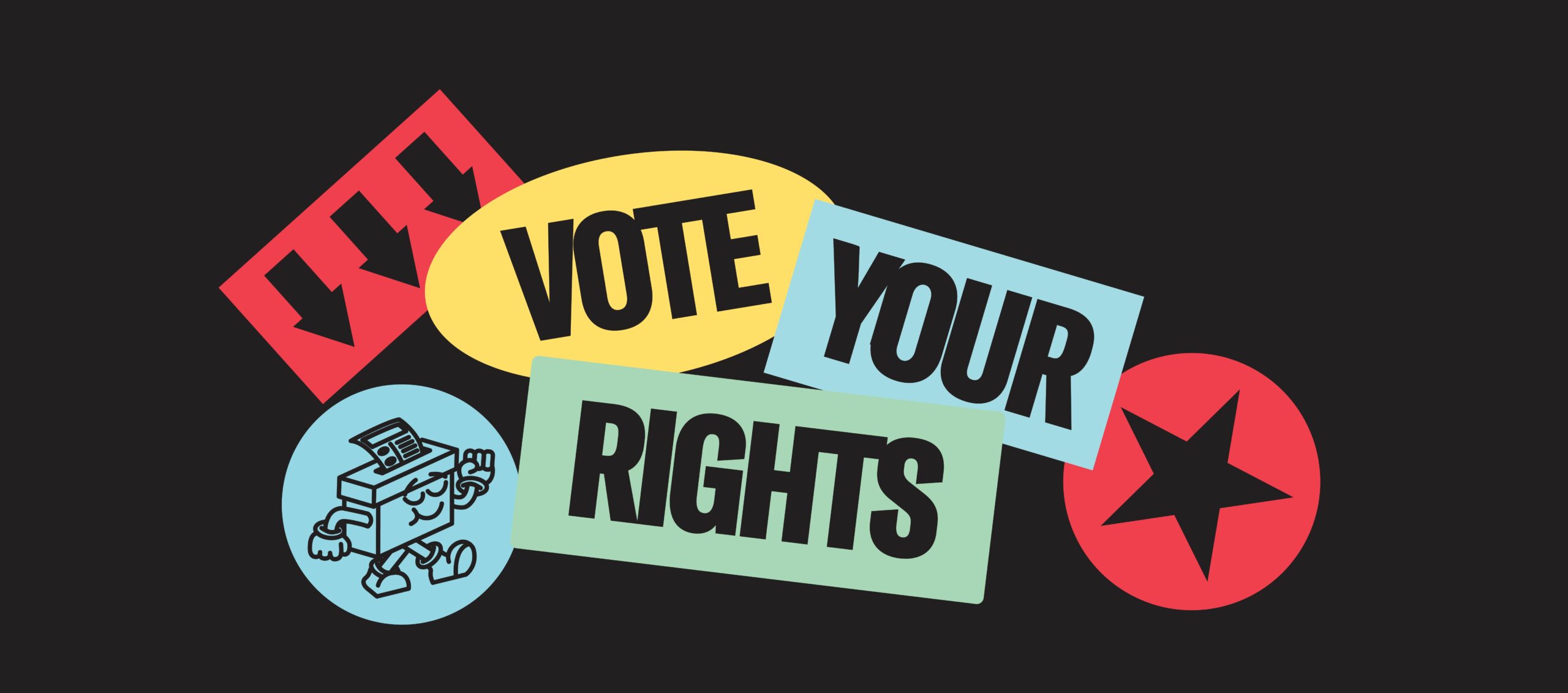There are many important races down ballot in this Election which impact your rights and civil liberties.
How to research the candidates for elected offices on your ballot:
- Find your sample ballot through your local election authority
- Check candidate’s website, social media, local news sources, or attend local candidate events to speak to the candidate directly
- Check if organizations that you support have endorsements or information on the candidate’s position
- Local bar associations, including county bar associations, are likely to post evaluations of the judicial candidates
Judges
Voters can elect and then decide to retain judges at the State Supreme Court, Appellate (regional), and Circuit Court (county) level Judges can:
- Interpret and consider the Constitutionality of laws passed by the state legislature – including abortion laws, voting laws, anti-discrimination laws.
- Hear and decide on cases regarding people’s rights and civil liberties.
- Preside over the criminal legal system.
Clerk of the Circuit Court
The Clerk of the Circuit Court is responsible for records related to the criminal and civil legal systems. These county based officials can:
- Create and implement innovative policies that increase transparency about the way in which the circuit courts operate in their jurisdiction.
- Create and implement programs to facilitate those seeking access to the legal system, including people representing themselves and those seeking critical services like changing the name or gender assignment on an Illinois birth certificate.
State’s Attorney
State’s Attorneys serve as the chief legal representative for each of the state’s 102 counties. State’s Attorneys can:
- Set charging priorities and policies within the office that address systemic inequality within the criminal legal system.
- Create and implement innovative programs that divert people out of the criminal legal system before they incur a criminal record that will follow them throughout their lives.
- Work in Springfield with other State’s Attorneys to advance or oppose legislation that impacts the criminal legal system, including measures that require additional police accountability and address racial inequities in the system.
Read our 2024 Candidate Questionnaire for Cook and Lake County
County Board Member
The County Board oversees government in the state’s 102 counties. County Board Members can:
- Pass countywide ordinances that protect basic civil liberties, including expanding access to abortion services, assuring and protecting free speech and protecting medical privacy.
- Set budgets for county operations that can advance civil liberties values, including funding around abortion access, and the criminal legal system.
- Set county budgets to allocate resources to elections – including updating voting machines and paying poll workers.
State Senator and State Representative
State legislators help pass laws that protect civil rights and liberties at the state level. These state officials can:
- Pass legislation that can expand or limit the rights and civil liberties of the people in Illinois. They have the ability to create protections in Illinois above the National laws. This includes abortion rights, anti-discrimination laws, police regulation, criminal legal system reform, and many more.
- Provide oversight of Executive Branch actions at the state level that impact civil liberties.
- Hold hearings to assist Illinois residents and legislators understand the critical need to protect civil liberties.
U.S. Representative
Federal Representatives help pass federal laws that can protect or infringe on civil liberties. These federal officials can:
- Pass legislation that can expand or limit the civil rights and civil liberties of all people in the country – this includes setting national immigration policies, and nationwide laws for voting, LGBTQ rights, disability rights, abortion rights and many others.
- Provide oversight of Executive Branch actions that impact civil liberties.
- Hold hearings to assist USA residents and legislators understand the critical need to protect civil liberties.

